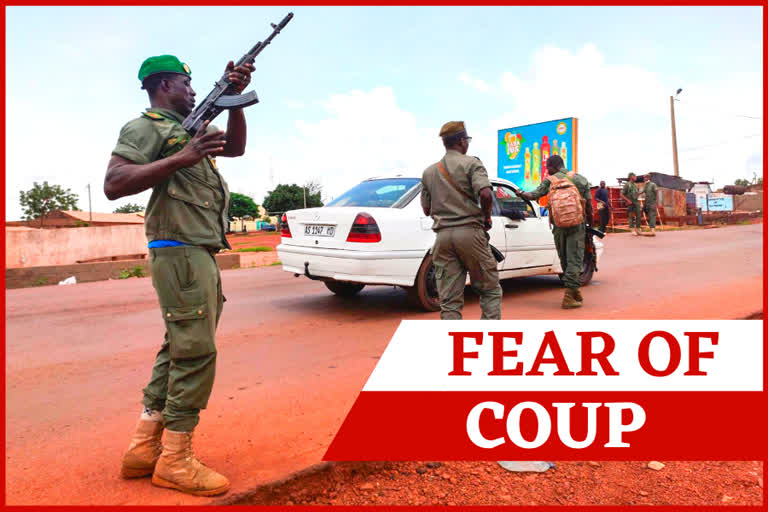Bamako: Mali mutiny has sparked fear of a coup as leader of mutinying troops claim President Ibrahim Boubacar Keita and Prime Minister Soumeylou have been arrested, media reports said.
It was not immediately clear who was behind the latest turmoil to wrack Mali, but the unrest erupted at the very same military barracks where the country's 2012 coup originated.
The soldiers' actions also re-energized government protesters in the capital of Bamako, prompting some to set fire to a building belonging to Mali's justice minister in the latest sign of mounting frustration with President Ibrahim Boubacar Keita's government.
Prime Minister Boubou Cisse urged the soldiers to put down their arms and puts the interests of the nation first.
"There is no problem whose solution cannot be found through dialogue," he said in a communique.
Read also: 13 French soldiers killed in helicopter collision in Mali
Earlier in the day, government workers fled their offices as armed men began detaining officials including the country's finance minister Abdoulaye Daffe.
"Officials are being arrested — it's total confusion," said an officer at Mali's Ministry of Internal Security, who spoke on condition of anonymity because he is not authorized to speak to journalists.
Mali's president, who was democratically elected and has broad support from former colonizer France and other Western allies, was believed to be sheltering at his private residence in Bamako's Sebenikoro neighborhood along with the prime minister.
About 100 of the protesters who have been calling for Keita's ouster gathered midday in Bamako in a show of support for the mutinous soldiers' actions.
The regional bloc known as ECOWAS that has been mediating Mali's current political crisis urged the soldiers to return immediately to their barracks in Kati, which is only 15 kilometers (less than 10 miles) from the presidential palace in the capital.
The United States said it was concerned about the situation unfolding in Mali, where French troops and U.N. peacekeepers have been working to stabilize the country amid the Islamic insurgency that took hold after the 2012 coup.
"The U.S. is opposed to all unconstitutional changes of government whether in the streets or by security forces," tweeted J. Peter Pham, the State Department's special envoy for the Sahel region.
The dramatic developments Tuesday bore a troubling resemblance to the events leading up to the 2012 military coup, which ultimately unleashed years of chaos in Mali when the ensuing power vacuum allowed Islamic extremists to seize control of northern towns. Ultimately a French-led military operation ousted the jihadists but they merely regrouped and then expanded their reach during Keita's presidency.
On March 21, 2012 a similar mutiny erupted at the Kati military camp as rank-and-file soldiers began rioting and then broke into the camp's armory. After grabbing weapons they later headed for the seat of government, led by then Capt. Amadou Haya Sanogo.
Sanogo was later forced to hand over power to a civilian transitional government that then organized elections. The man who won that 2013 vote — Mali's current president — has faced mounting pressure to step down as his unpopularity has grown.
Regional mediators have urged Keita to share power in a unity government but those overtures were swiftly rejected by opposition leaders who said they would not stop short of Keita's ouster.
The current president has faced growing criticism of how his government has handled the relentless Islamic insurgency engulfing the country once praised as a model of democracy in the region. The military faced a wave of particularly deadly attacks in the north last year, prompting the government to close its most vulnerable outposts as part of a reorganization aimed at stemming the losses.
The fact Mali's finance minister was among those targeted Tuesday bolsters the theory the mutiny was motivated by salary disputes, said Alexandre Raymakers, senior Africa analyst at Verisk Maplecroft.
"This remains a fast-moving situation, but initial indications point to the mutiny being within the national guard, with significant elements of the army still loyal to (Keita)," he said. "The mutiny is likely driven by a range of factors closely tied to the deteriorating military situation in central and northern Mali, rather than the ongoing political crisis. "
AP



